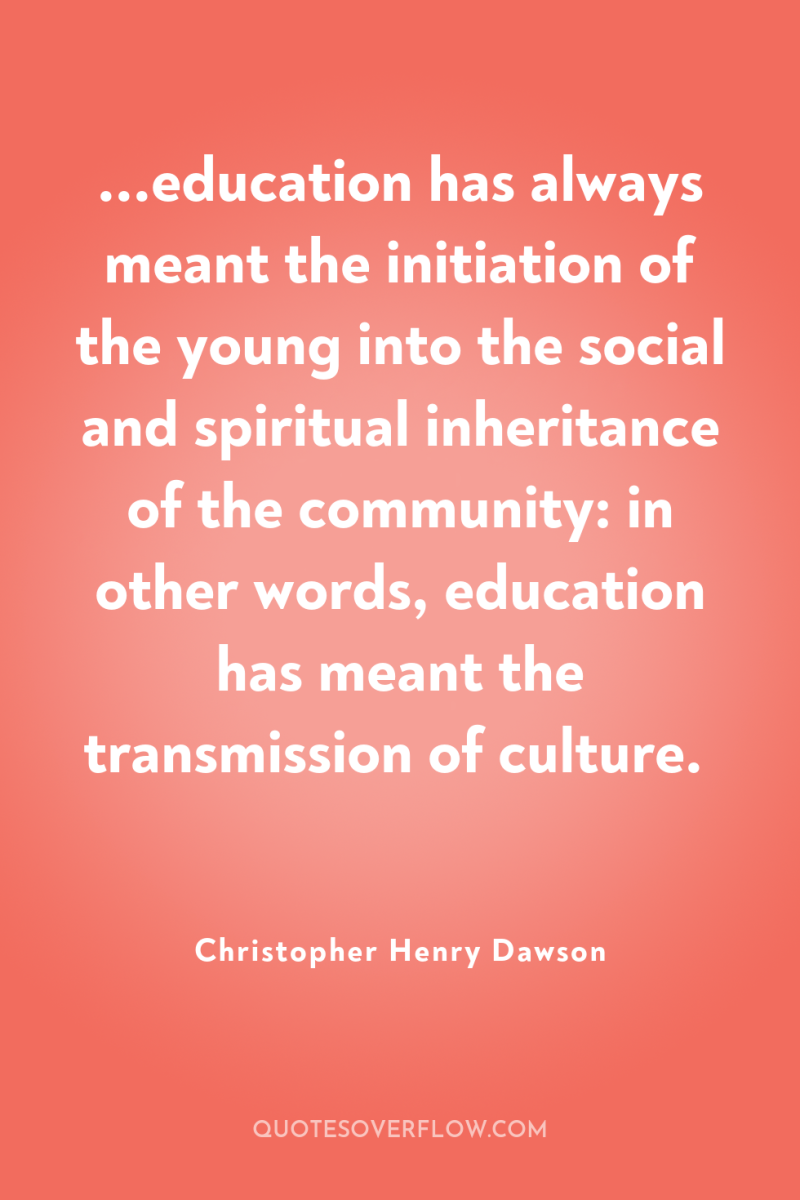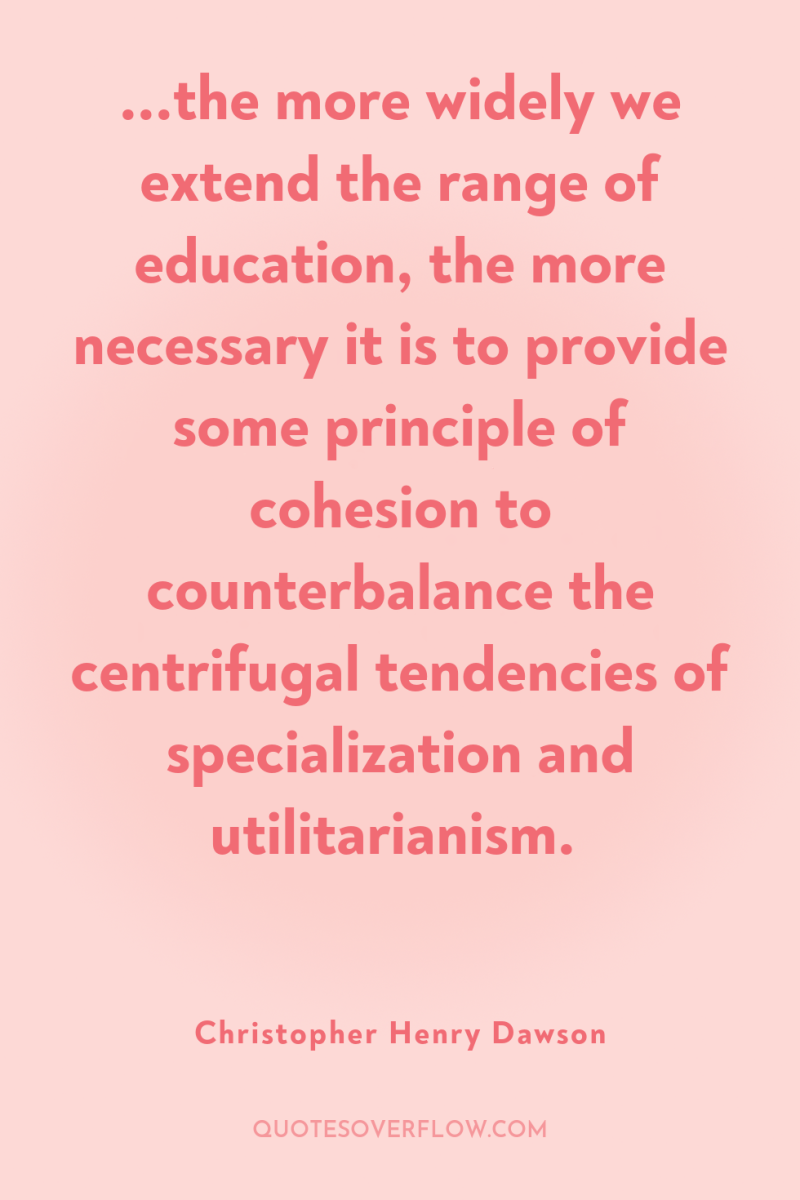
1
...education has always meant the initiation of the young into the social and spiritual inheritance of the community: in other words, education has meant the transmission of culture.Christopher Henry Dawson
2
Classical education was only half the old system of European education--below it and above it there was the religious education that was common to the whole people, and the higher theological education that was peculiar to the clergy, who provided the majority of the teachers in both the other departments of education. Now the lowest level of this structure, which has been least studied and least regarded, was the most important of them all. It is true that it differed considerably in different parts of Europe, but for the religious rather than material reasons. In Protestant Europe it was founded on the Bible and the catechism, whereas in Catholic Europe it was based on the liturgy and on religious art and drama and mime, which made the Church the school of the people. But in either case it provided a system of common beliefs and moral standards, as well as the archetypal patterns of world history and sacred story which formed the background of their spiritual world.Christopher Henry Dawson
3
The obvious difficulty that has prevented the study of European culture becoming a part of the regular curriculum of studies is its vastness and its complexity. The great advantage of classical education was the fact that it involved the study of only two languages and two literatures and histories. But European culture has produced about twenty vernacular literatures, and its history is spread out among an even larger number of political communities. At first sight it is an unmanageable proposition and we can understand how educationalists have so often come to acquiesce in a cultural nationalism which at least saved them from being overwhelmed by a multiplicity of strange tongues and unknown literatures. But the true method, it seems to me, is rather to find the consitutive factors of the European community and to make them the basis of our study. This means reversing the traditional nationalist approach which concentrated the student's attention on the distinctive characteristics of the national cultures and disregarded or passed lightly over the features that they shared in common. It means also that we should have to devote much more attention to the religious development, since it was in religion that Europe found its original basis of unity. .Christopher Henry Dawson

4
...the more widely we extend the range of education, the more necessary it is to provide some principle of cohesion to counterbalance the centrifugal tendencies of specialization and utilitarianism.Christopher Henry Dawson
5
..the establishment of a universal system of public education inevitably changed the relations of education to the state. It is this above all else which has caused the mind of our society to lose its independence, so that there is no power left outside politics to guide modern civilization, when the politicians go astray. For in proportion as education becomes controlled by the state, it becomes nationalized, and in extreme cases the servant of a political party.Christopher Henry Dawson
6
For the immense extension of the scale of education and its ramification into a hundred specialisms and technical disciplines has left the state as the only unifying element in the whole system. In the past the traditional system of classical education provided a commo intellectual background and a common scale of values which transcended national and political frontiers and formed the European or Western republic of letters of which every scholar was a citizen.Christopher Henry Dawson
7
In spite of this, there is no doubt that the modern European and American system of universal education suffered from serious defects. In the first place, the achievement of universality was purchased by the substitution of quantitative for qualitative standards. Education was accepted as a good in itself and the main question was how to increase the total output: how to teach more and more people more and more subjects for longer and longer periods. But in proportion as education became universal, it became cheapened. Instead of being regarded as the privilege of a few it became a compulsory routine for everybody.Christopher Henry Dawson